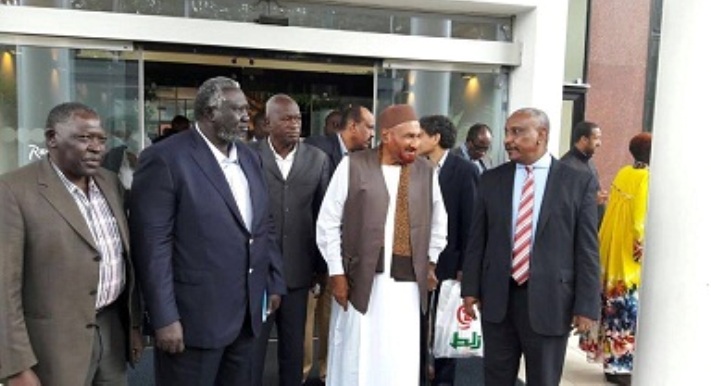Sudan’s dialogue didn’t achieve peace or national consensus: SPLM-N

October 15, 2016 (KHARTOUM) – The Secretary-General of the Sudan People’s Liberation Movement-North (SPLM-N), Yasir Arman said on Friday that the internal dialogue process didn’t achieve peace and national consensus but also failed to give the ruling National Congress Party (NCP) an opportunity to normalize its relations with the international community.
At the closing session of the National Dialogue Conference on Monday, Khartoum’s government parties and several political forces participating in the process approved the national document which constitutes the basis for drafting the permanent constitution. However, armed groups and opposition parties refused to join Khartoum process as they demand the government to end war and ensure freedoms in the country ahead of the dialogue.
In a statement extended to Sudan Tribune on Friday, Arman said that the national dialogue wrapped up with the continuation of war and ( President Omer) al-Bashir’s threats to crush the (armed) movements, plus the complete absence of national consensus and the impossibility to normalize relations with the international community”.
“So, what did the dialogue has achieved internally and externally?” He wondered.
He stressed that the dialogue failed to bring something new to support the economy and to end the political crisis. But rather, it empowered the president, reproduced totalitarianism and deepened the regime’s crisis.
According to initial plans of the African Union High Level Implementation Panel (AUHIP), which mediates the peace talks for the Two areas and Darfur, the armed groups and holdout opposition groups had to join the internal dialogue after the signing of a humanitarian truce and a pre-dialogue meeting to agree on the confidence building measures.
However the failure to reach cessation of hostilities and humanitarian access agreements has forced the mediators to reconsider the peace roadmap.
SPLM-N Secretary-General praised what he called the “boycott” by the Thabo Mbeki, AUHIP head and the representative of UN Secretary-General for the dialogue meeting, stressing that the opposition Sudan Call forces were committed to their position and promises not to participate in the dialogue before the creation of a conducive environment ensuring political freedoms.
The Sudan Call forces have been recently criticised by their former allies in the National Consensus Forces (NCF) who accuse them of seeking to conclude with the regime an agreement that would not achieve democratic change.
Arman said the end of the internal dialogue offers a new opportunity for the opposition to unite its ranks away from the mistrust and scepticism. He reiterating his call for a dialogue among opposition groups on its unification to achieve change and to find an alternative to end war, bring democracy, stability and sustainable development.
(ST)
